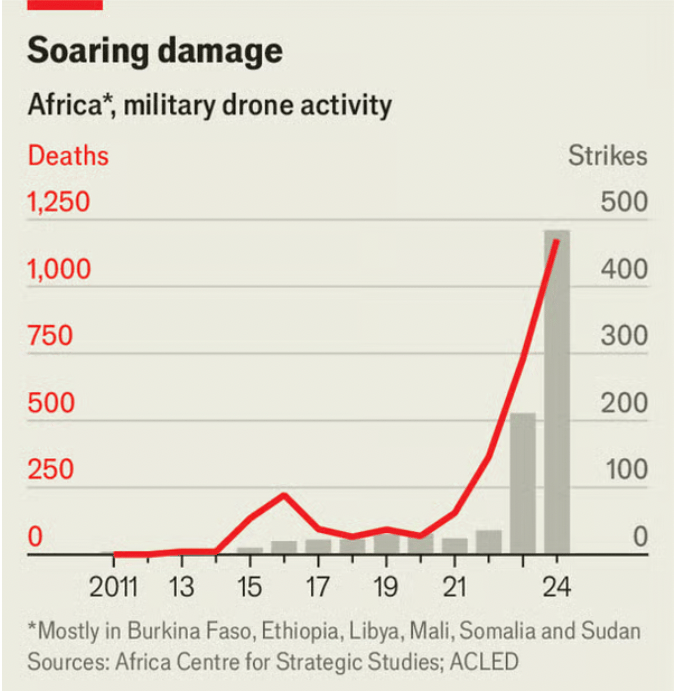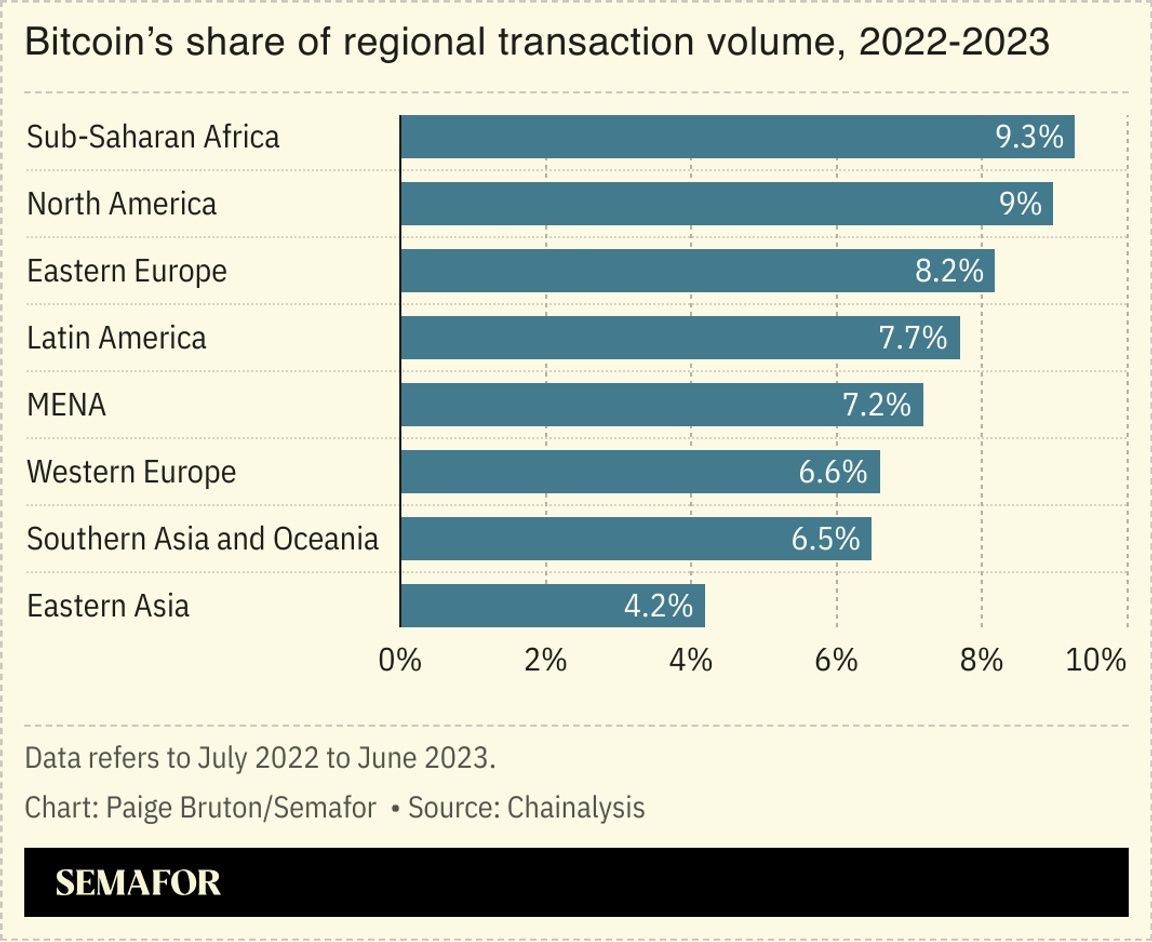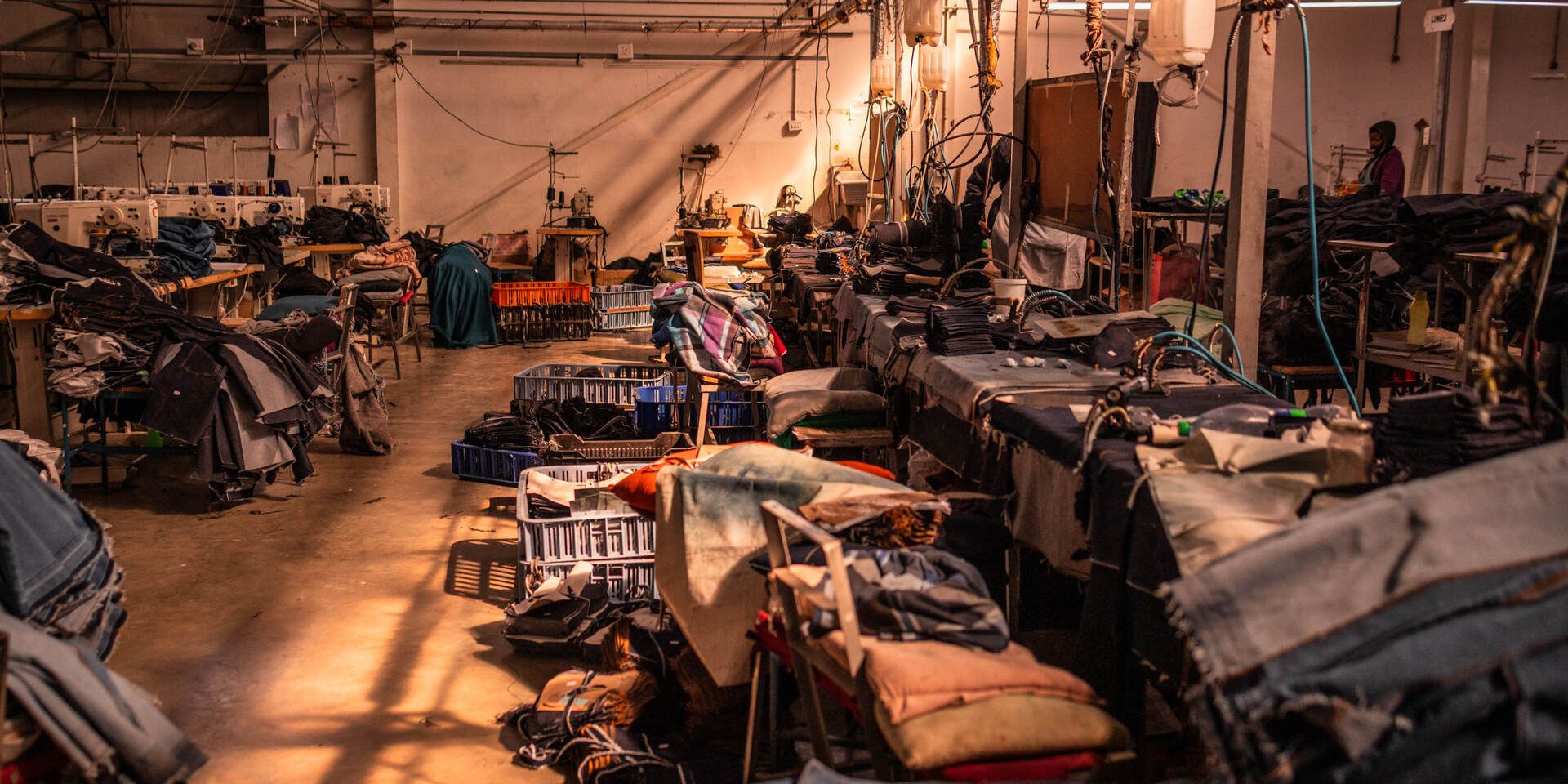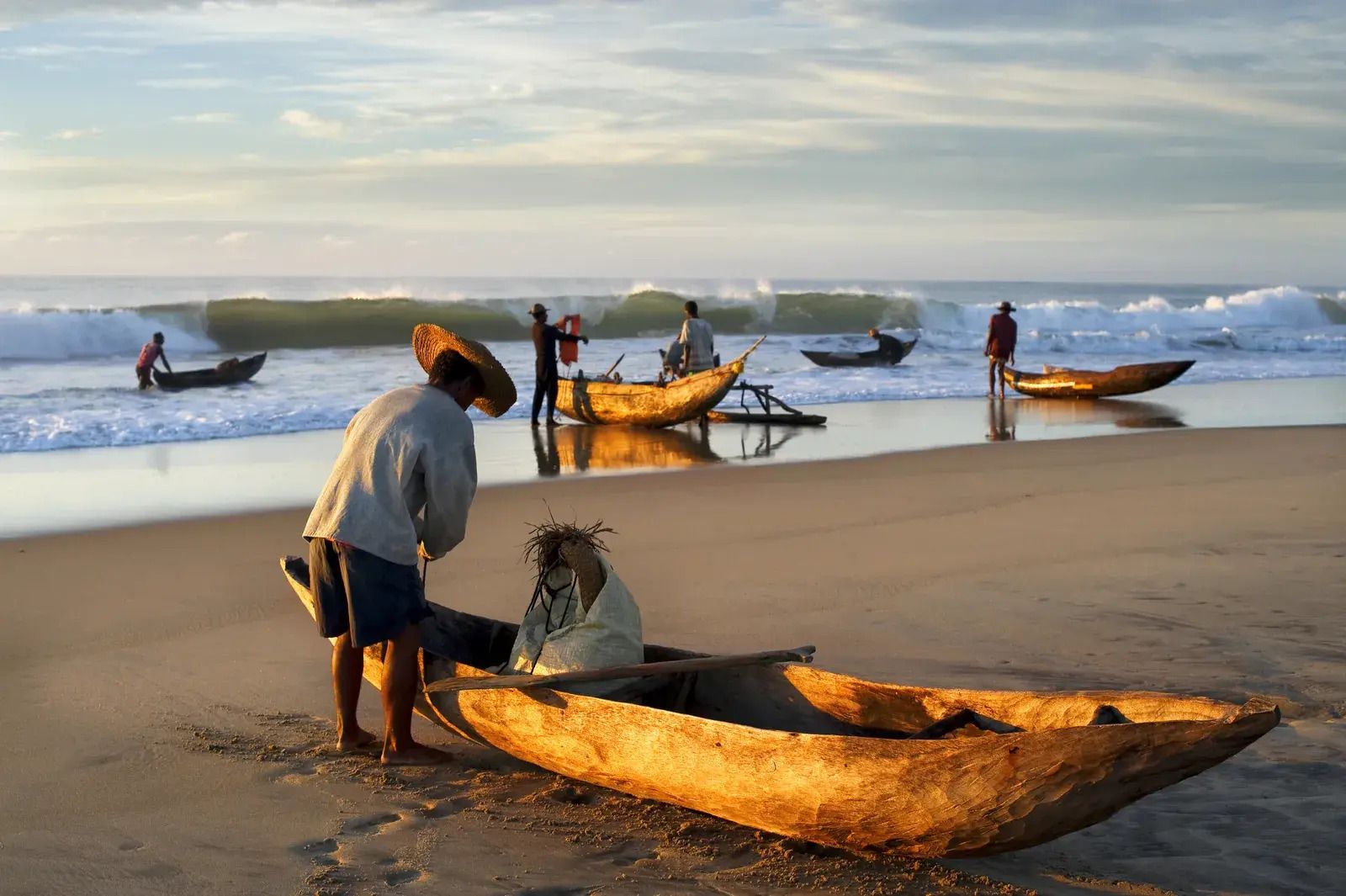Extremists Advance, Economies Rise - Africa’s contradictions were on full display this week: militant violence has surged in the Sahel over the past few years, even as Mozambique, Cameroon and Algeria are showing that it’s not inevitable. Meanwhile, tech stabilized, oil bets firmed up and East Africa’s economies proved surprisingly resilient. From jihadist frontlines to fintech pivots to a textile-fueled art renaissance in Madagascar, this week’s brief maps a mosaic of power, pressure and possibility.
Africa Trivia
Global Crypto Adoption - According to Chainalysis' 2023 rankings, which African country ranked highest in global crypto adoption?
A) Kenya
B) Nigeria
C) South Africa
D) Ghana
Graphic of the Week
Militants on the March
Africa Center for Strategic Studies maps a grim trend: 22,307 have been killed by militant Islamists in the past year, up 60% since 2023. But the map shows some positive trends too:
Mozambique has reduced deaths by 80% since 2021.
North Africa is quiet: there were only 17 fatalities last year.
Cameroon attacks dropped by 45%.
The Sahel? Not so good.
Burkina Faso is ground zero, with the government controlling only 40% of the country.
Al Shabaab now earns $200M/year from extortion, tolls, taxes and piracy—and is deploying Houthi-supplied drones and missiles to boost its military offensives in central and southern Somalia.
Benin, Togo: Fatalities doubled as violence pushed south to the coast.
Why It Matters: According to the research, military coups are failing to deliver security and in many cases, making matters worse. Civilians face brutality not just from militants but also from security forces and Wagner-linked militias. However, improvements in Mozambique, Cameroon and Algeria prove it's not inevitable. Read more: Africa Center for Strategic Studies and for other angles on the story, be sure to read a recent article in The Economist: Africa’s Scary New Age of High-tech Warfare and the recent WSJ profile of Burkina Faso’s 37-year-old military ruler Ibrahim Traoré, a populist icon defying Western influence as violence deepens and democracy stalls.

Source: The Economist
What We Are Reading
Angola: Protests over a diesel price hike turned violent in Luanda, leaving several dead and many arrested amid clashes and looting (Reuters).
Central African Republic: President Touadera announces third-term bid after scrapping term limits in 2023 (Reuters).
Cameroon: Electoral commission rejects opposition leader Maurice Kamto’s candidacy, boosting President Biya’s reelection chances (Reuters).
DRC: Islamic State-backed rebels kill at least 34 in attack on Catholic church in Ituri province (AP News).
Ghana: Government cancels $1.2B bauxite deal with local firm Rocksure International and seeks global partners to develop key mining site (Reuters); Central bank plans to license crypto firms to regulate digital assets and tap into rising crypto use (Bloomberg); Google commits $37M to expand its AI research and training across Africa, focusing on food security, language tech and scholarships (Semafor).
Morocco: Dozens of Moroccan children and adults swam through fog and rough seas to reach Spain’s Ceuta enclave, highlighting growing desperation at Europe’s only land border with Africa (Reuters).
Namibia: Oil production gains traction as Galp and Total prepare investment decisions despite earlier setbacks (Bloomberg).
Nigeria wins 10th Women's Africa Cup of Nations title after a thrilling 3-2 comeback against Morocco (FIFA); Nigeria’s Federal Inland Revenue Service is requiring banks and fintechs to share real-time transaction data through a new portal to improve VAT compliance in the digital economy (Tech Cabal); Bature Brewery is expanding across Nigeria with local craft beers, aiming to grab a small but growing share of the country’s $7B beer market (Reuters).
Somalia’s state-building project may be unraveling as Puntland defeats ISIS, Mogadishu weakens and foreign allies lose faith (The Economist).
South Africa and China agree to collaborate on AI research, digital infrastructure and affordable tech to boost education, agriculture and connectivity (The Citizen).
Zambia: IMF approves loan review, unlocking $184M to support economic recovery (Reuters).
Business & Finance in Africa
East Africa Rising

Source: Deloitte
My week was full of good meetings, including with Tewodros Sisay of Deloitte. Earlier this month, he released the 2025 East Africa Economic Outlook. In summary, growth is holding, reforms are landing but risks remain real. Here are the highlights:
Ethiopia – Reform + Resilience
GDP: 7.2% in 2025 (down from 8.1%)
Inflation falling: 15% in early 2025
Birr devalued >50% since float; FX reserves up from $1.4B → $3.8B
FDI surged 28% YoY to $4.1B
Securities exchange + IMF deal = rising investor confidence
Kenya – Stabilizing, Digitizing
GDP: 5.3% in 2025
Inflation down to 4.5%; interest rates cut
Tourism to grow 24%; 3 million arrivals projected
Manufacturing push + digital economy = 9.2% of GDP
FX reserves up to $11.1B; public debt hits $95.4B
Tanzania – Building Momentum
GDP: 6% in 2025
Construction to grow 10.1%; power capacity rising
Port capacity doubles; new dam adds 2.1GW
Risks: elections, climate shocks, currency depreciation
Uganda – Oil-Driven Growth
GDP: 6.9% in 2025
First oil exports via EACOP in Q4
Inflation steady under 5%; debt at 52% of GDP
Risks: climate shocks, EU deforestation ban, election spending
Zambia – Mining Rebound
GDP: 4% in 2024, poised to climb
Copper output surging, debt restructuring 90% complete
Moody’s upgraded outlook to “Positive”
Inflation still 15.3%, kwacha weak
U.S. tariffs pose new trade headwinds
Why it matters: East Africa is back on its feet. Big bets on energy, mining, and reform are paying off but political risk, inflation, and debt remain wildcards. Read more: 2025 East Africa Economic Outlook.
Africa Exits Debt Distress

Source: Bloomberg
For the first time since 2015, no African country has a sovereign risk premium in distressed territory, marking a major milestone in the continent’s economic recovery. Key highlights:
Mozambique was the last to cross the line when its bond spread fell below 1,000 basis points, ending the decade-long run of debt distress.
Post-COVID defaults (Zambia, Ghana, Malawi and Ethiopia) sparked IMF programs and domestic reforms that are now bearing fruit.
Zambia and Ghana restructured debt; Kenya regained market access.
Only 6 of 303 bonds are still trading at distressed levels, down from 22 a year ago.
Senegal is flashing risk: its 2028 eurobond trades at a 20% yield after revelations of a 119% debt-to-GDP ratio.
Why it matters: Africa’s worst debt crisis in a decade is easing. With high-yield African bonds outperforming emerging market peers, investors are taking notice, especially as global uncertainty rises. Read more: Bloomberg.
Africa’s $1.42B Tech Reset

Source: Tech Cabal
According to The State of Tech in Africa – H1 2025 report by TechCabal Insights, African startups raised $1.42B in H1 2025, up 78% YoY, as founders shift from growth-at-all-costs to measured and strategic scaling. Key highlights:
Fintech dominated, pulling in $638M (45% of all capital).
Debt is back: $448M raised, signaling investor confidence in real revenue models.
Only two mega deals, but more precision: fewer sectors and bigger bets.
29 acquisitions, a record H1 - led by fintech consolidations.
Partnerships surged: Telco-fintech alliances (Airtel+Starlink, *Chpter+Flutterwave) are reshaping digital access.
Layoffs dropped 56% and shutdowns fell 33%. The early correction phase is easing.
45% of expansions went outside Africa; startups are scaling globally.
Why it matters: Africa’s tech ecosystem is stabilizing fast with smarter capital, stronger cross-border alliances and sharper business models. This isn’t a bounce, it’s a reset. Read More: TechCabal State of Tech in Africa (H1 2025 Report)
*Disclosure: Chpter is a Renew Capital portfolio company.
Innovation in Africa
Utility Over Hype

Source: Semafor
I am intimidated by Web3. So I was grateful to meet with Jason Eisen this week in Nairobi. He’s the legendary founder of Africa DeFi Alliance and Safari DAO. He humbly clarified some things for me and after lunch, I knew I needed to start digging. This report from ABSA provided some insights. Africa’s blockchain sector may be small but it’s got momentum. Key highlights:
Funding down, deals up: Blockchain startups in Africa raised $122.5M in 2024, down 36% YoY, but pulled off a 15% jump in the number of deals, signaling resilience in early-stage funding.
Bigger bets: Median deal size hit $2.8M, double the African VC median, showing investor confidence in a tight market.
Fintech > protocols: Capital flowed to practical fintech applications—crypto-fiat platforms, DeFi tools and data infrastructure—while largely avoiding protocol-level blockchain projects.
Regulatory wins: Nigeria, South Africa and Kenya made major legal strides, boosting investor clarity and momentum. In the news this week, Ghana joins the rank, aiming to regulate crypto by September.

Source: ABSA
Why It Matters: Blockchain is gaining traction in inclusive finance, compliance and digital identity. Investors are getting pickier but Africa’s blockchain founders are picking up momentum. Read the Africa-Blockchain-Report-2024 and if you are in Kenya in early September, check out Safari DAO’s ETH Safari event.
U.S. (NOT) in Africa
When the U.S. Pulls Out

Source: WSJ
Since the Trump administration slashed foreign aid, reduced PEPFAR funding and threatened tariffs, the fallout across Africa is becoming increasingly visible and is now being documented. This week, the WSJ has documented two examples:
In Lesotho, 50% tariff threats crushed garment exports, shuttering factories and laying off thousands, mostly women. The government has declared a state of emergency.
In Congo, post-assault HIV kits have nearly disappeared amid a spike in reports of abuse and health workers are now turning survivors away. New HIV infections are rising, with eastern Congo’s rate already more than double the national average (3.5%).
Across both countries, school construction projects were paused mid-build clinics ran dry and families faced rising desperation.
Why it matters: Aid cuts and tariff threats aren’t abstract. They’re measured in missed meds, lost jobs and lives at risk. Real consequences for real people. Read more in WSJ: Congo Braces for HIV Surge After U.S. Funding Stops and In a Country Trump Says Nobody’s Heard Of, Tariffs Bring Chaos.
Explorations in Africa
Island of Expression
I keep coming back to Madagascar in my explorations, something about its textures, colors and spirit keeps calling. This week, a piece in Vogue focuses on Hakanto Contemporary, a gallery in Antananarivo, founded in 2020 by Joël Andrianomearisoa.

Source: Vogue
The show “Lamba Forever Mandrakizay” features 21 Malagasy artists reimagining the lamba, the ceremonial textile symbolizing identity and continuity.
Trivia Answer: B) Nigeria (Reuters).
Thumbs up to our Africa Brief intel wizards, Shayne and Ruth, for chasing the leads and connecting the dots. Drop us a line at [email protected] and if you’re loving the Brief, pass it on.


